- Definition
- Best cashless health plans
- Types of cashless health plans

Simran has over 3 years of experience in content marketing, insurance, and healthcare sectors. Her motto is to make health and term insurance simple for our readers has proven to make insurance lingos simple and easy to understand by our readers.
Reviewed By:

Anchita has over 6 years of experience in content marketing, insurance, and healthcare sectors. Her motto to make health and term insurance simple for our readers has proven to make insurance lingos simple and easy to understand by our readers.
Updated on Apr 23, 2025 7 min read
What Is Cashless Health Insurance?
Cashless health insurance is a healthcare payment system that allows policyholders to receive medical treatment at any network hospital without paying anything upfront. Your insurer will directly settle the bills with the hospital. This automatically streamlines the process of medical care. Also, it reduces the financial stress on the policyholder.
Why Is It Important To Have Cashless Health Insurance?
Earlier health insurance claims were very hectic. Due to this challenge, people used to hesitate before investing in health insurance. However, advancements in the insurance sector and artificial intelligence (AI) involvement have made the claim process much easier.
In the last decade, we have seen a lot of advancements in the healthcare industry and insurance industry. The ’Cashless Everywhere’ initiative has made cashless health insurance more feasible. Earlier, cashless health insurance was only available in the network hospital. But this revolutionary initiative allows you to avail cashless medical treatment at any hospital. Let me tell you more about it.
Best cashless health insurance policies in India 2024
| Category | Best Health Insurance Plans | Unique Features You Can Avail | Approx Premium |
| Individual & Family Health Plans | Niva Bupa Aspire Gold + | First-of-a-kind coverage for adoption and IVF treatment Combine multi-year sum insured (2 or 3 years) to use anytime Access to gyms | Rs. 834/- Per month |
| Star Health Assure | Covers non-medical items Pain management and rehab cover Covers in-utero fetal surgeries | Rs. 960/- Per month | |
| Care Supreme | Unlimited Automatic Recharge Unlimited E-consultations Optional Benefits | Rs. 929/- Per month | |
| Aditya Birla Activ One Nxt | Protecting you against medical inflation There is no capping on expenses like room rent, ICU charges, etc. Refills your cover up to 100% | Rs. 469/- Per month | |
| Senior Citizen Health Plans | ManipalCigna Prime Senior Classic | Upgrade to the ‘Any room’ category during hospitalization Reduce pre-existing disease waiting period to 90 days Unlimited sum insured restoration | Rs. 1,581/- Per month |
| Niva Senior First Gold | Modern Treatments Avail Air Ambulance for emergency evacuation Covers Organ Donor Expenses | Rs. 1,121/- Per month | |
| Aditya Birla Activ Care Standard | Nursing at home is available Access to lifestyle support equipment Annual Health Assessment for Preventive Healthcare | Rs. 2,016/- Per month |
What Are The Benefits Of Cashless Health Insurance?
Imagine, you are at the hospital, taking care of your ageing mother, who is hospitalised. Would you like to be worried about the hospital bill? No right. We all want to take care of our loved ones when they are in need. Here comes the cashless health insurance in the picture. Well, there are many more advantages than this.
Eliminates Upfront Payment
When you have health insurance, you do not need to pay out of pocket for any treatment at the network hospital. Your insurer will settle the bill directly with the hospital.Reduces Financial Stress
Medical emergencies are very stressful. Having cashless insurance removes the additional burden of worrying about how to pay for the treatment. In a way it allows you to focus on recovery.Faster Claim Process
You will experience a faster process during the whole medical and claim process. Your paperwork significantly reduces when your insurer handles the settlement directly.Immediate Access To Treatment
A cashless facility makes sure that you can receive prompt medical attention, which can be crucial in emergencies. Also, there is no scope for delay when the bills are cleared directly between the insurer and the hospital.Savings Protection
It safeguards your savings by preventing the need to use them for unexpected medical expenses.Tax Benefit
Premiums paid for the cashless health insurance are qualified for tax exemptions under Section 80D of the Income Tax Act.Convenience
Cashless health insurance is very convenient. Especially during times of stress, not having to worry about paying large sums of money is very helpful.
POV- Check out premiums here to get your top 5 cashless health insurance plan.
Types of cashless health insurance
In India, there are three types of cashless health insurance.
Cashless Individual Health Insurance
Provides cashless coverage to the individual policyholder, in case of any medical emergency. Usually, individual health insurance >policies are more extensive and flexible, as they give you the freedom to choose your coverage as per the needs of an individual person.
Cashless Family Floater Health Insurance
Family floater plans give coverage to your entire family. It helps in covering the medical expenses for all the family members and shielding them against any unforeseen medical emergencies. Today, many popular health insurers in India offer comprehensive and cashless family floater health insurance to cater to small/ medium/ extended family members.
Cashless Senior Citizen Health Insurance
A specially designed policy to cover the healthcare needs of those people who are 60 years old and above. This requires a pre-policy health check-up for any individual purchasing senior citizen health insurance. As we age, our medical requirements change, and we need special care and attention in terms of health. So, senior citizens’ health insurance covers them all.
Cashless Maternity Health Insurance
Embrace the beginning of motherhood with cashless maternity health insurance. It provides coverage for delivery, pre-natal care, post-natal care, and newborn care including vaccinations under some comprehensive cashless health policies.
Cashless Critical Illness Health Insurance
Managing critical illness is itself a challenging task. So to ease your stress, cashless critical illness health insurance is widely available under trusted health insurance companies in India. It will take care of your medical bills in case of any illness like cardiovascular ailments, cancer, etc.
How does cashless health insurance work?
Cashless claim settlement is a very straightforward process and can be done within a day at a maximum.
- Choose a suitable cashless health insurance plan.
- Select the preferred network hospital for your treatment.
- In case of planned treatment, inform your cashless health insurance provider about your treatment.
- Show your health insurance card or policy number to the hospital.
- Get the required medical treatment.
- Check if there is any co-payment required.
- Voila, your claim has been settled directly between your insurer and healthcare provider.
How To File A Cashless Claim Under Health Insurance?
Filing a cashless claim under health insurance is a very straightforward process. Here is the general outline of the steps that are involved:
Step 1- Verify your network hospital before you receive the treatment. This is crucial for availing of a cashless facility.
Step 2- Inform your insurance company or the third-party administrator within 48 hours before the hospital admission. In case of an emergency, inform your insurer as soon as possible.
Step 3- Go for pre-authorisation, visit the hospital desk and provide your health card and ID proof.
Step 4- Fill out the form provided by the insurance desk and submit it to your insurer or TPA.
Step 5- The insurer will review your form and the supporting documents. And issue the letter to the hospital, specifying the approved coverage amount.
Once approved, you can proceed with the necessary treatments.
Remember, the insurance company may also deny the claim. There might be many reasons for it. Have a look below.
Top Reasons For Claim Rejection In A Cashless Mediclaim Policy
- When you haven’t declared existing health conditions while buying the policy.
- When you apply for a claim during the waiting period.
- When your treatment is not covered in the policy. (Check exclusions list)
- Incomplete documentation.
- Going for treatment at any non-network hospital (for some insurers it might be a problem).
- Maybe your total claim amount has exceeded the sum insured.
- Lack of pre-authorisation during the planned hospitalisation.
Rejection of a cashless claim does not mean that you cannot claim. You can re-check the documents and apply again. Also, you can apply for a reimbursement claim.>
Difference Between Cashless Claim And Reimbursement Claim
| Cashless Claim | Reimbursement Claim |
| When the claim is made by the insurers directly to the hospital. | You pay the medical bill upfront to the hospital, and later the insurer will transfer the sum insured to your account. |
| Need to get planned treatment within the network hospital. | Can take treatment in any hospital. |
| Pre-authorisation is required. | No pre-authorisation is required. |
| Eliminates the need for upfront payment. | Need to do an upfront payment. |
| Faster process | Slower process |
| Generally limited to the network hospital only. | Flexibility to choose any hospital. |
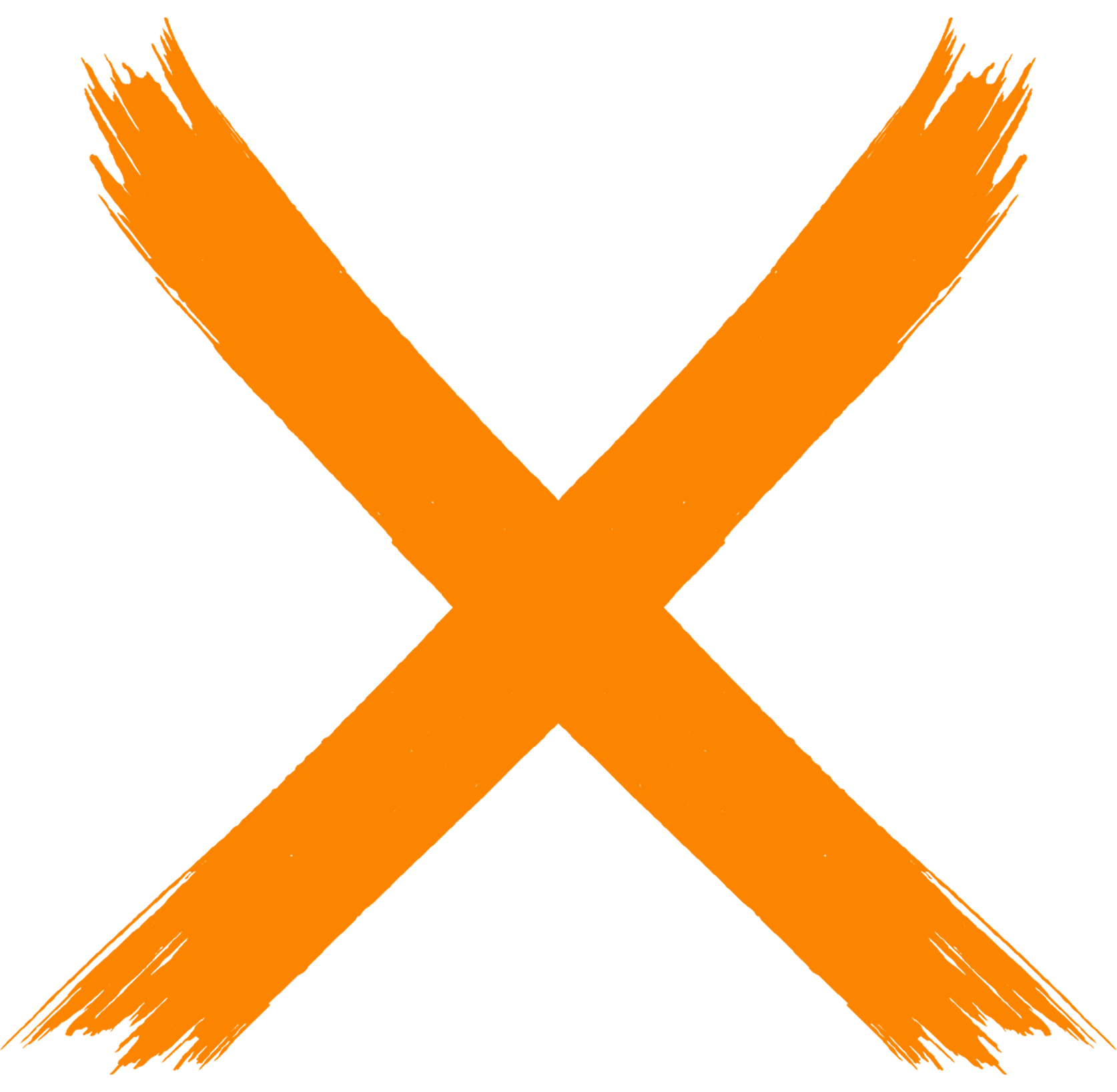 pert Advice
pert Advice
There are a few things that you need to keep in mind before making a cashless claim at a network or non-network hospital.
- Understand the coverage your policy is providing.
- Know your waiting period.
- Understand what your policy does not cover (exclusions).
- Inform your insurer on time.
- Keep all the records and documents handy.
Inclusion and Exclusion in a cashless network hospital
| Inclusions | Exclusions |
|---|---|
| Room rent: Based on the policy’s limits. | Pre-existing diseases: Conditions that existed before the policy inception. |
| Doctor’s fees: Including surgeons, anaesthetists, and consultants. | Cosmetic surgeries: Procedures for aesthetic purposes. |
| Nursing charges: For regular and intensive care. | Dental treatments: Except for accidents causing dental injuries. |
| Medicines and consumables: As prescribed by the doctor. | Ayurvedic, homoeopathic, and Unani treatments: Unless specifically covered. |
| Diagnostic tests: Including X-rays, blood tests, and scans. | Maternity expenses: Unless a maternity cover is added. |
| Surgical expenses: Including implants and prosthetics. | Self-inflicted injuries: Including those caused by substance abuse. |
| Ambulance charges: In case of an emergency. | War and nuclear risks: Coverage is usually excluded. |
Bottom line
Cashless health insurance has revolutionised the way we approach healthcare in India. It eliminates the financial burden during medical emergencies. It offers peace of mind by streamlining the claim process. However, it is very important to understand all the terms and conditions before buying the policy. With advancements in technology and the expanding network of cashless hospitals, the future of healthcare looks promising. Do you feel the same?
Read more about various health insurance trending topics here.
Any more questions? Schedule a quick appointment with our IRDAI-certified insurance experts. We believe in No Spam, No Gimmicks, Only Expert Insurance Advice.
Consult for Personalized Insurance Advice

But how does it work?
Schedule a call with India’s number 1 trusted advisor with a 4.5+ rating on Google. We are not your average insurance agents. Our advisors are experts in their insurance knowledge and will give you the right information at the right time. The service is free of cost! Don’t worry, we won’t spam as we value your time.
Health Insurer Network Hospitals
Cashless Health Insurance: Frequently Asked Questions
1. What is a network hospital?
A network hospital is a healthcare facility that has a tie-up with your insurance company. Cashless claims are generally processed smoothly in these hospitals.
2. Can I claim cashless treatment in a non-network hospital?
Yes, it is possible to claim cashless treatment in a non-network hospital in case of emergency.
3. What documents are required for a cashless claim?
You need to show the insurance policy-related documents, ID proof, and hospital bills.
4. Can I avail of cashless treatment at any hospital in India?
Cashless treatment is primarily available at hospitals within your insurer’s network. However, with the "Cashless Everywhere" initiative, the scope is expanding, and more hospitals are being included. But this can only happen in case of emergency. Always confirm with your health insurer or TPA.
5. What happens if my cashless claim is rejected?
If your cashless claim is rejected, you can still seek reimbursement by paying the hospital bills upfront and submitting the necessary documents to your insurer. You can also re-check your documents and apply again if there is an error.
6. Are all pre-existing conditions covered under cashless health insurance?
Yes, but most policies have a waiting period for pre-existing conditions. After the waiting period, they are typically covered. Always check your policy documents for specific details or contact PolicyX.com insurance experts for further assistance.
7. What documents are required for pre-authorization?
Typically, you’ll need your health insurance card, identification proof, a completed pre-authorization form, and relevant medical records or reports.
8. Is there a limit to the number of cashless claims I can file in a year?
No, there is generally no limit to the number of cashless claims you can file, as long as the total claim amount is within your policy’s sum insured.
9. Can I switch from a reimbursement claim to a cashless claim during hospitalization?
If you are admitted to a network hospital and have the required documents, you can request a switch to a cashless claim. However, this depends on the hospital and insurer’s policies.
10. What is the role of a Third Party Administrator (TPA)?
A TPA acts as an intermediary between the insurer and the policyholder. They handle claim processing, pre-authorization, and other administrative tasks.
11. Does cashless health insurance cover outpatient treatments?
Generally, cashless facilities are primarily for inpatient hospitalization. Some policies may offer coverage for specific outpatient treatments, but this varies. Check your policy documents for details.
12. How long does the pre-authorization process usually take?
For planned hospitalizations, the pre-authorization process can take a few hours to a day. In emergencies, it’s usually faster, but it depends on the insurer and hospital.
13. Are non-medical expenses covered in cashless health insurance?
Some comprehensive policies, like Star Health Assure, do cover non-medical items. However, most standard policies do not. Always check your policy documents.
14. If I have a family floater plan, can each family member avail cashless treatment separately?
Yes, each family member covered under a family floater plan can avail of cashless treatment separately, as long as the total claim amount remains within the sum insured.
15. What is the "Cashless Everywhere" initiative?
The "Cashless Everywhere" initiative aims to expand the availability of cashless treatment beyond network hospitals, allowing policyholders to avail cashless facilities at a larger number of hospitals across India. This is currently under development and expansion.
16. How does AI help in cashless health insurance?
AI helps streamline the claim process by automating document verification, fraud detection, and faster claim approvals. It also aids in personalized policy recommendations and customer support.
Health Insurance Companies
Know More About Health Insurance Companies
Share your Valuable Feedback
5
Rated by 1 customers
Was the Information Helpful?
Select Your Rating
We would like to hear from you
Let us know about your experience or any feedback that might help us serve you better in future.


Written By: Simran Saxena
Simran has over 3 years of experience in content marketing, insurance, and healthcare sectors. Her motto is to make health and term insurance simple for our readers has proven to make insurance lingos simple and easy to understand by our readers.
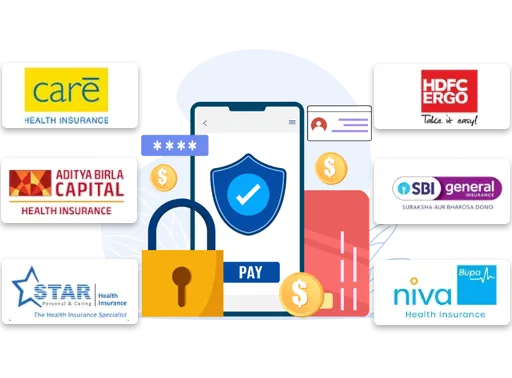





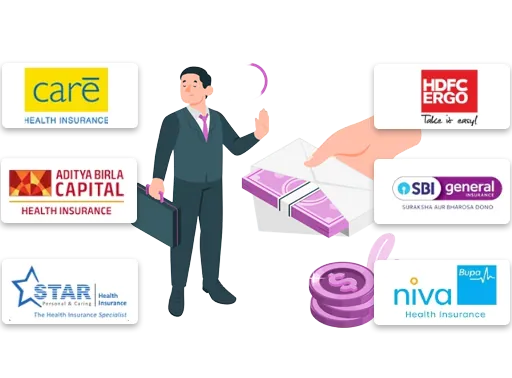
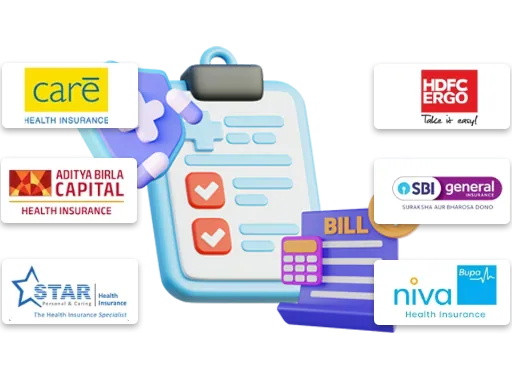

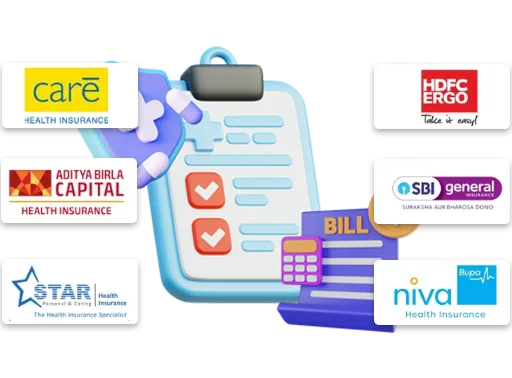
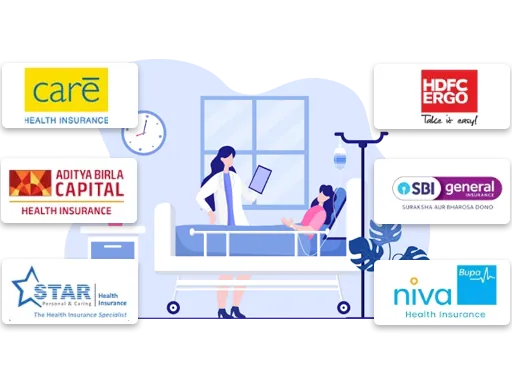
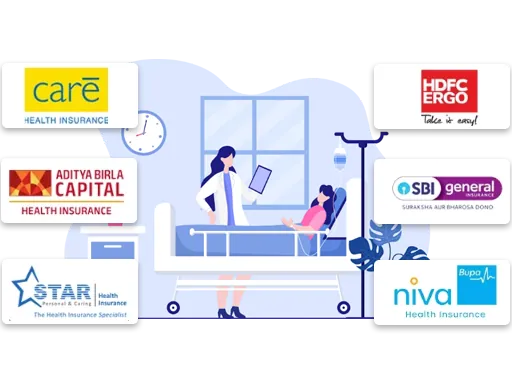
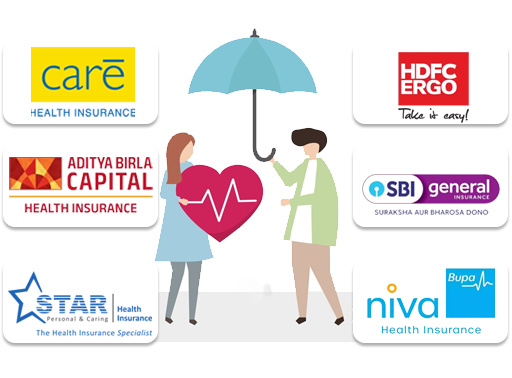
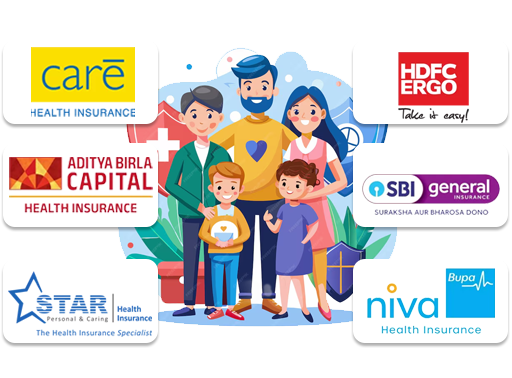
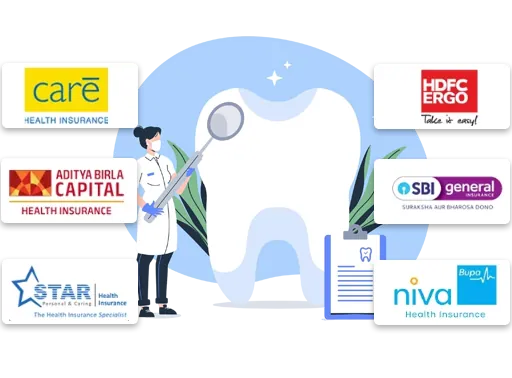
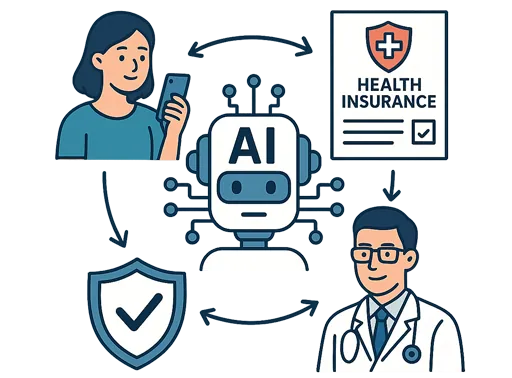
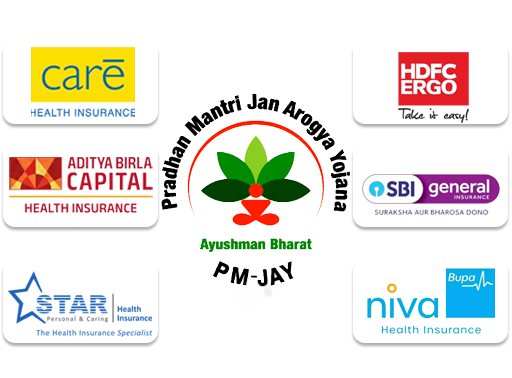





Do you have any thoughts you’d like to share?